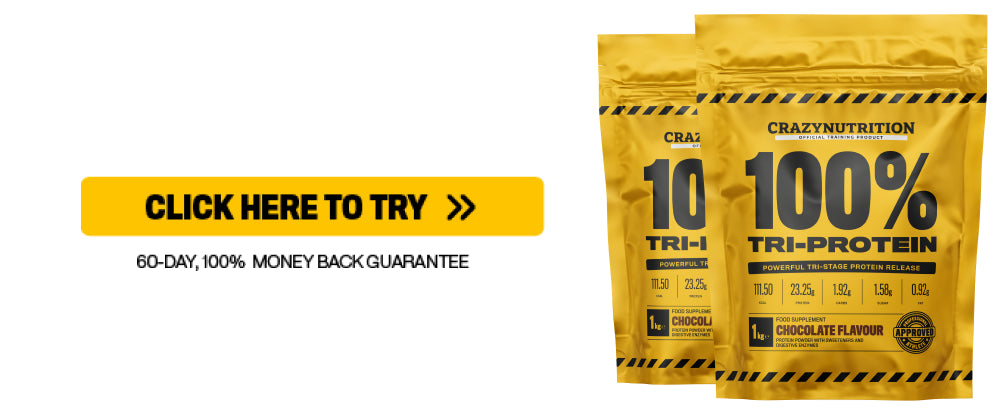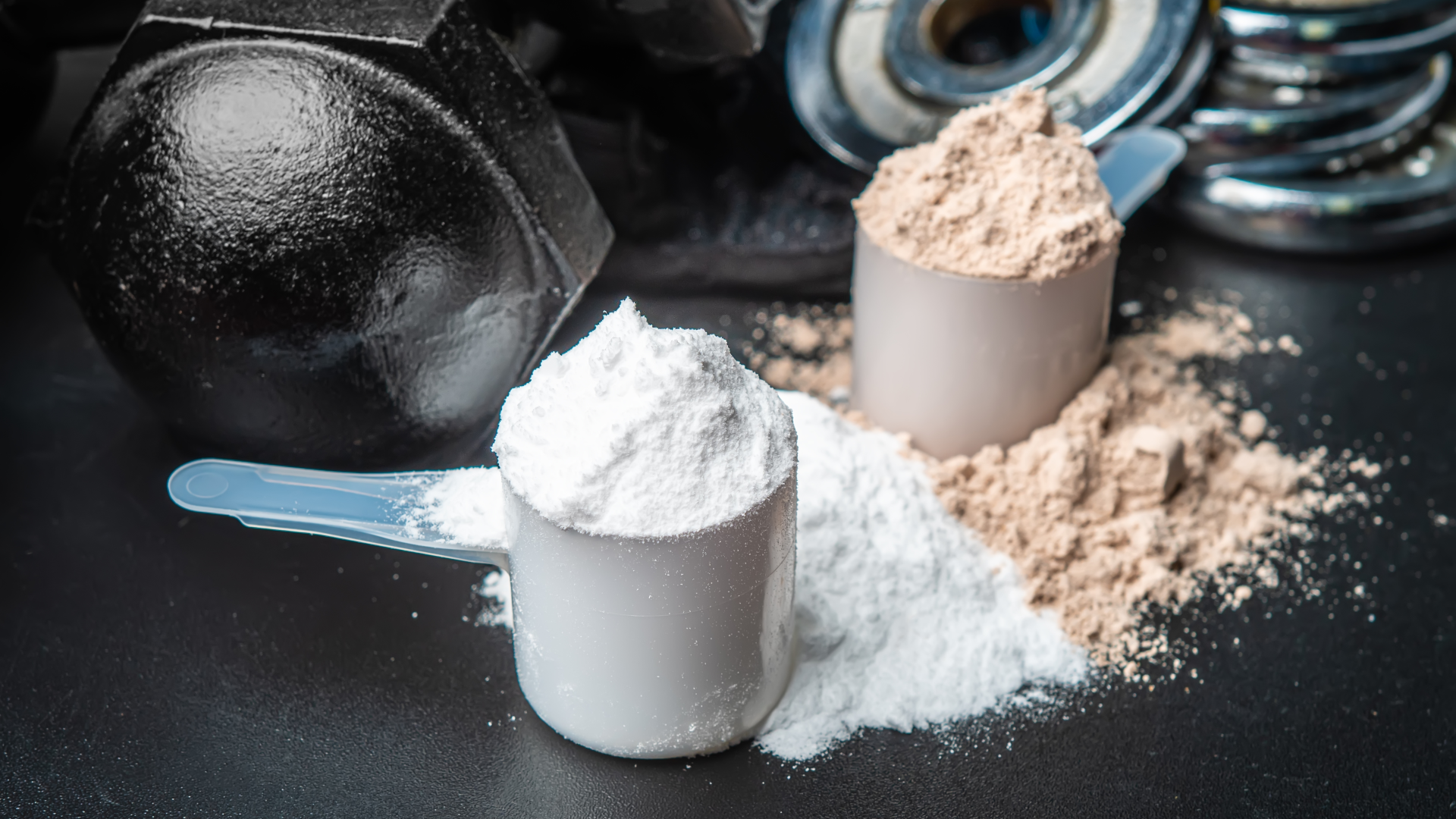Get straight to the point…
|
The workout supplement industry is a bit of a minefield for the average consumer, but if you are celiac or following a gluten-free diet, it gets even tougher to figure out which products you should use.
The search for gluten-free protein powders is more complex than it might be for everyone else.
Supplements are even more critical for people with food intolerances or digestion issues. Your body finds it more difficult to absorb the nutrients required to have a happy, healthy, lively body.
So taking fitness supplements, especially those with added vitamins and minerals, can give you that extra energy boost you sorely need.
Having said that, taking the right supplement is vital. Anything containing an ingredient that triggers your digestive issues can do more harm than good.
So what is whey protein, and is it suitable for gluten-free or if you have celiac disease?
What is Protein Powder?
Protein powder is the core supplement for most serious athletes and committed gym-goers. Protein is found in different concentrations in a vast range of foods, and it is one of the critical nutrients we need to consume to perform everyday functions.
Proteins are made up of essential amino acids, which are responsible for the growth and regeneration of muscle and bone, and they are also used to make our hormones and enzymes.
Our bodies cannot synthesise essential amino acids, so we must get them from our diet.
Protein is found in many everyday foods, including beans, chicken, red meat, eggs and leafy vegetables, but getting enough protein to encourage high-level muscle growth can be tricky.

This is why protein powders have become so popular; they are an easy, cost-efficient way to increase your protein consumption without consuming a huge deal more calories.
Just like protein can be found in a wide range of foods, protein powder can be derived from various sources. Some of the most common types are whey protein, pea protein, hemp protein, soy protein, brown rice protein and casein protein.
- Related content: The best way to get more protein in your diet
What is Whey Protein Powder?
Whey protein powder is derived from milk and has high levels of branch-chain amino acids, including Leucine which has been shown to kick-start the process of muscle recovery and growth after a workout.
Whey protein powders are widely regarded as the most potent protein supplements in helping us achieve body recomposition, i.e., becoming leaner and stronger.
There are multiple types of whey protein powders, including
- Whey protein concentrate
- Whey protein isolate
- Whey protein hydrolyzate.
All are derived from cow’s milk; however, they are processed differently, resulting in varying nutritional profiles and protein content.
The first thing that some of you on a gluten-free diet will pick up on here is the word ‘milk.’ Yes, whey protein is derived from cow’s milk, so it contains lactose (how much depends on which type of whey protein you consume).
Those on a gluten-free diet or with celiac disease may not avoid dairy altogether, but if you’ve had accidental gluten exposure, you might need to avoid it for a couple of weeks until your body recovers. Plant-based protein would be an excellent alternative for a couple of weeks after accidental gluten consumption.
So does that mean whey protein is safe to take as part gluten-free diet when your digestion is working okay?
Well, that depends….
- Related content: What is whey protein powder (and should you take it)?
Is Whey Protein Powder Gluten-Free?
Whey protein powder is naturally gluten-free, meaning it contains no gluten-containing ingredients.
However, for an end product to be classed as a 'gluten-free’ protein powder, some strict standards must be adhered to. This ensures that those with extreme sensitivities to gluten or celiac disease are protected as much as possible from accidental exposure.
So, many whey protein powders technically fall into the category of ‘no-gluten’ but cannot be classified as “gluten-free” legally.
Confused?
Read on for more about how the food and drinks industry regulates gluten.
What is gluten?
It’s helpful first to understand what gluten is. Gluten is a protein found in some grains such as wheat, barley, malt and rye, and it helps give structure to their cells.

When used in food, it acts as a binder, holding the food together while allowing it to remain flexible. That’s why gluten-free bread tears much more easily than traditional bread - it is brittle.
People with celiac disease or non-celiac gluten sensitivity find gluten hard to digest and suffer symptoms such as diarrhoea, constipation, fatigue and rashes.
Continually ingesting gluten, particularly for celiacs, can cause serious long-term health conditions, including digestive tract issues, fertility problems, anaemia and malnutrition.
The jury is still out on whether a gluten-free diet is beneficial for those who don't have gluten sensitivity. Some studies have found that non-celiac individuals who avoid gluten may increase their risk of heart disease. So over the last few years, following a gluten-free diet has become more common, even for those with no sensitivities to gluten.
For this reason, more and more gluten-free foods are becoming available on the mass market.
What standards does food have to meet to be labelled Gluten Free?
Did you know the term gluten-free is legally protected?
You can’t just claim food to be gluten-free.
To use the term “gluten-free”, you must demonstrate that you meet strict standards. This stops just anyone from using it and ensures the safety of those with gluten sensitivity or celiac disease.
The U.S. Food and Drug Administration (FDA) specifies that:
“food either is inherently gluten-free; or does not contain an ingredient that is:
- a gluten-containing grain (e.g., spelt wheat);
- derived from a gluten-containing grain that has not been processed to remove gluten (e.g., wheat flour); or
- derived from a gluten-containing grain that has been processed to remove gluten (e.g., wheat starch), if the use of that ingredient results in the presence of 20 parts per million (ppm) or more gluten in the food. Also, any unavoidable presence of gluten in the food must be less than 20 ppm.”
That final sentence is important regarding whey protein powder - as it relates to the potential for cross-contamination.
While most whey protein powders will naturally be free of gluten-containing ingredients, they won’t necessarily be manufactured in factories that can avoid cross-contamination.
Other products may be made in the same space, and although small, there is a risk that gluten-containing ingredients could make their way into the protein powder.
This is why we do not label our 100% Tri-Protein from Crazy Nutrition as gluten-free.
That doesn’t mean our whey protein powder has gluten-containing ingredients, but we can’t be 100% sure. So it would be unethical for us to label our protein powder gluten-free.
And this would be the case for many whey protein powders on the market (unless they are labelled gluten-free).
Can you have whey protein powder if you are gluten-free?
This depends on the reasons why you are following a gluten-free diet…
If you have non-celiac sensitivities or choose to avoid gluten for health reasons, you should be able to consume whey protein powder.
Technically most whey protein (including our own Tri-protein) does not have any gluten-containing ingredients - although you should always check the label for specific ingredients if you have dietary restrictions, as different products will have different ingredients that may include gluten.
However, unless the whey protein packaging states that the product is gluten-free, you cannot guarantee that there is no cross-contamination.
If you have severe gluten sensitivity or have celiac, it’s much more important to stick to gluten-free ingredients. In this case, you can find gluten-free whey or plant protein to help you consume protein and reach your fitness goals.
Remember always to check the label, and if in any doubt about the ingredients or their impact on your health, then please consult the appropriate health professional.
If you are interested in our 3-phase release tri-protein, then you can find out more about it and buy here.



